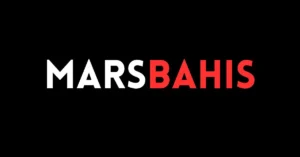As cryptocurrency matures from a disruptive innovation into a structural pillar of the global economy, regulation has become a defining concern. For platforms at the frontier of decentralized finance (DeFi), navigating this regulatory terrain is more than a challenge—it’s an imperative. Among the most watched in this new regulatory landscape is Crypto30x.com regulation, a blockchain project known for combining robust DeFi tools with a commitment to transparent governance.
In this detailed examination, we delve into how Crypto30x.com regulation is approaching in 2025: from internal protocols and international compliance, to how it balances decentralization with the demands of state and global institutions.
READ MORE: Crypto30x.com ASX: AI-Powered Insight for Blockchain Stock Investors
The Regulatory Imperative in DeFi
The surge of interest in digital finance throughout the early 2020s brought not only innovation but systemic scrutiny. Governments across North America, Europe, and Asia have drafted legislation addressing:
- Anti-Money Laundering (AML)
- Know Your Customer (KYC)
- Cross-border taxation
- Investor protections
For DeFi platforms, the dilemma has always been reconciling regulation with decentralization. How can you comply with centralized authority while adhering to the ethos of distributed control?
Crypto30x.com’s Governance-First Approach
Crypto30x.com regulation anticipates as part of its core protocol design. Its Proof-of-Participation (PoP) consensus integrates governance as a security feature, not merely an afterthought. From day one, the platform allowed for modular compliance, meaning that regulations can be implemented at the dApp or user level without compromising the protocol.
Key governance mechanisms include:
- On-chain compliance votes: Token holders decide how and when to adopt regulatory modules.
- Jurisdictional flexibility: Users can select compliance modes based on geography.
- Zero-knowledge KYC options: Enables identity verification without sacrificing privacy.
KYC and Identity Management
A significant innovation is the Crypto30x.com regulation Decentralized Identity Hub (DIH). Users maintain self-sovereign identities stored on-chain, which can be selectively revealed:
- To regulators in applicable jurisdictions
- For unlocking regulated DeFi services (e.g., securities trading)
- In the event of disputes or fraud claims
This identity system is encrypted and operates under zero-knowledge proof frameworks, ensuring that users maintain control over their personal data.
READ MORE: GoCryptoBet.com Bet: Gambling’s Future, or a Digital Mirage?
Compliance as Code: Smart Regulation Modules
The platform’s smart contract infrastructure includes regulatory modules that can be attached or detached depending on user needs or jurisdiction. These include:
- AML screening scripts for wallets
- Tax reporting APIs compatible with global tax authorities
- Smart audit trails that log transactional metadata
This modular approach allows the platform to meet compliance requirements dynamically, rather than applying a one-size-fits-all model.
Collaborations with Regulators and Institutions
Rather than resisting oversight, Crypto30x.com actively engages with policymakers. The platform has hosted roundtables with:
- EU digital finance policymakers
- SEC and CFTC liaisons in the United States
- Asian digital asset task forces
These sessions inform regulatory frameworks while helping the platform proactively adapt its protocols. It also ensures a feedback loop that represents the interests of DeFi participants to regulators.
Regulatory Challenges Faced
Despite its proactive stance, Crypto30x.com has faced challenges such as:
- Ambiguity in classification of tokens (security vs. utility)
- Restrictions on algorithmic stablecoins
- Limited banking partnerships in tightly regulated markets
To mitigate these, the team maintains a legal research division that analyzes emerging laws and proposes code changes accordingly. The platform also advocates for open standards in digital asset classification.
Educational and Transparency Initiatives
Crypto30x.com has invested in regulatory literacy for its users. Its Compliance Portal includes:
- Plain-language guides on DeFi regulation
- A real-time regulatory map by country
- Video explainers on smart contract compliance
By empowering users to understand the rules, the platform fosters informed participation.
The Role of C30X Token in Compliance
The C30X Token plays an integral role in the regulatory framework:
- Staking for compliance verification: Nodes must stake tokens to validate KYC-compliant transactions.
- Access control: Certain token thresholds unlock regulated features.
- Incentives: Token rewards are offered for participation in compliance governance.
This model helps align network incentives with regulatory integrity.
Future-Proofing for Global Regulation
Looking forward, Crypto30x.com aims to:
- Integrate with ISO blockchain standards
- Develop cross-chain compliance bridges with other DeFi ecosystems
- Collaborate with NGOs for ethical finance standards
The roadmap includes the launch of an AI Compliance Agent, a tool that predicts and pre-screens transactions for risk according to the latest international legal standards.
Conclusion
Regulation is not a threat to decentralization—when implemented thoughtfully, it can be a catalyst for maturity. Crypto30x.com demonstrates that it is possible to build systems that uphold user sovereignty while honoring legal and ethical norms.
As DeFi enters its second decade, platforms like Crypto30x.com are redefining what it means to be not only innovative but responsible. Through smart governance, modular compliance, and proactive policymaking, it offers a blueprint for others navigating the complex path of crypto regulation.
FAQs About Crypto30x.com Regulation
1. Does Crypto30x.com require KYC for all users?
No, only users accessing regulated financial services are required to complete KYC, and it’s done via zero-knowledge proofs.
2. How does Crypto30x.com comply with international tax laws?
It uses smart contracts with tax APIs that can export data to major tax systems, helping users stay compliant.
3. What is the role of governance in regulation?
Token holders vote on how regulatory features are implemented, ensuring a democratic and adaptive approach.
4. Are Crypto30x.com’s regulatory modules open source?
Yes, they are open-source and auditable, allowing transparency and third-party validation.
5. Can regulators interact with the platform directly?
Yes, Crypto30x.com maintains open channels with regulators and invites participation in public protocol discussions









